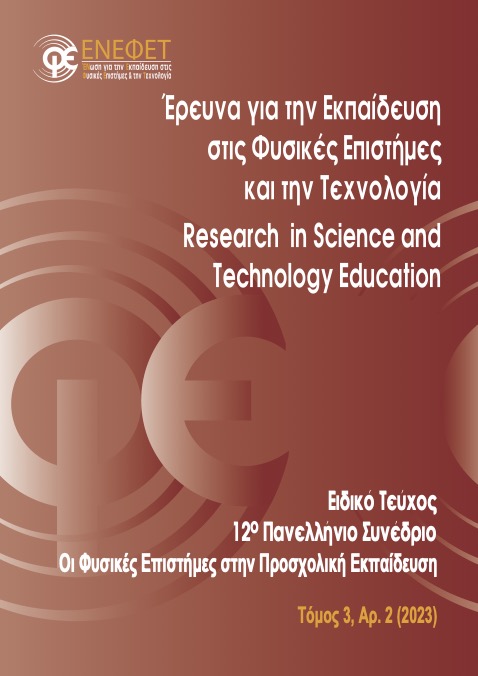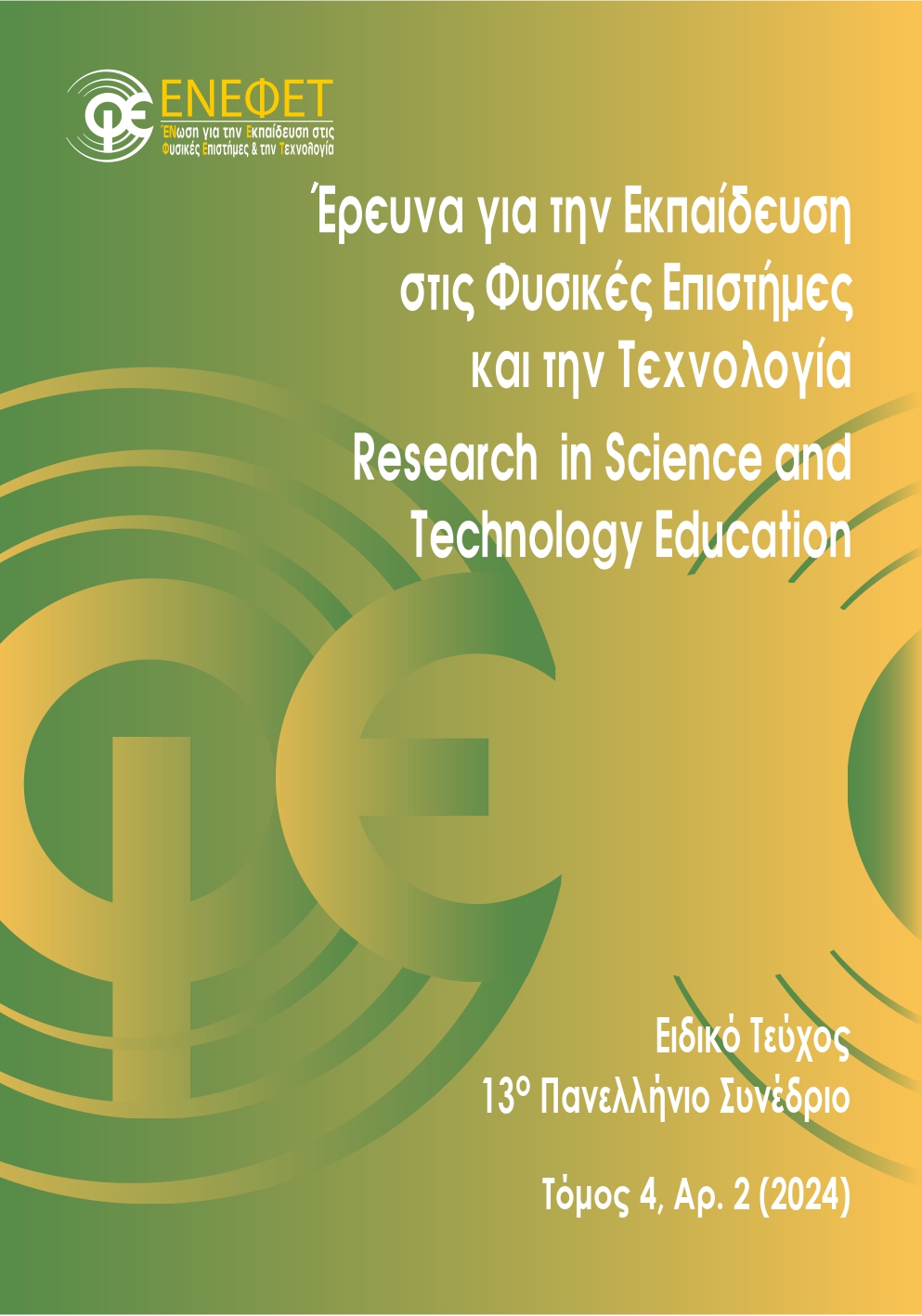Έλεγχος Συσχέτισης της Αλγοριθμικής Σκέψης με την Ηλικία των Μαθητών/τριών Πρώτης Σχολικής Ηλικίας, στα Πλαίσια του Μαθήματος της Μελέτης Περιβάλλοντος

Περίληψη
Στις μέρες μας, η εξάπλωση των νέων τεχνολογιών έχει αλλάξει τον τρόπο που ζούμε, μαθαίνουμε και εργαζόμαστε, γεγονός που καθιστά επιβεβλημένη την καλλιέργεια δεξιοτήτων, όπως αυτών της υπολογιστικής σκέψης (ΥΣ), οι οποίες δεν αφορούν μόνο στη μελλοντική επαγγελματική σταδιοδρομία των σημερινών μαθητών/τριών, αλλά επιπλέον είναι εφαρμόσιμες στην καθημερινή ζωή των πολιτών των μοντέρνων κοινωνιών. Στην παρούσα εργασία παρουσιάζεται ένα εργαλείο αξιολόγησης βασικών δεξιοτήτων της ΥΣ μαθητών/τριών προσχολικής και πρώτης σχολικής ηλικίας, το οποίο εφαρμόστηκε σε σχετική μελέτη που διεξήχθη στο Ηράκλειο της Κρήτης κατά το σχολικό έτος 2018-2019 σε δείγμα 435 μαθητών/τριών. Ανάμεσα στα άλλα, ελέγχηκε και η συσχέτιση της αλγοριθμικής σκέψης – η οποία είναι θεμελιώδης δεξιότητα της ΥΣ – με την ηλικία των μαθητών/τριών της Α΄ και Β΄ τάξης του Δημοτικού. Τα αποτελέσματα όχι μόνο επιβεβαίωσαν την υπό εξέταση συσχέτιση, αλλά, επιπλέον, ανέδειξαν ότι η ηλικία αποτελεί προγνωστικό παράγοντα των επιπέδων της αλγοριθμικής σκέψης, προβάλλοντας την ανάγκη δημιουργίας αναπτυξιακά κατάλληλων εκπαιδευτικών πρακτικών καλλιέργειας δεξιοτήτων της ΥΣ.
Λεπτομέρειες άρθρου
- Πώς να δημιουργήσετε Αναφορές
-
Κανάκη Κ., & Καλογιαννάκης Μ. (2023). Έλεγχος Συσχέτισης της Αλγοριθμικής Σκέψης με την Ηλικία των Μαθητών/τριών Πρώτης Σχολικής Ηλικίας, στα Πλαίσια του Μαθήματος της Μελέτης Περιβάλλοντος. Έρευνα για την Εκπαίδευση στις Φυσικές Επιστήμες και την Τεχνολογία, 3(2), 69–98. https://doi.org/10.12681/riste.34477
- Ενότητα
- Άρθρο Ερευνητικό
Οι συγγραφείς διατηρούν τα πνευματικά δικαιώματα και παρέχουν στο περιοδικό το δικαίωμα της πρώτης δημοσίευσης μαζί με την αδειοδότηση της εργασίας με CC-BY-NC-SA, που επιτρέπει σε άλλους να μοιράζονται αυτή την εργασία με αναγνώριση του συγγραφικού δικαιώματος και την αρχική δημοσίευση σε αυτό το περιοδικό.



